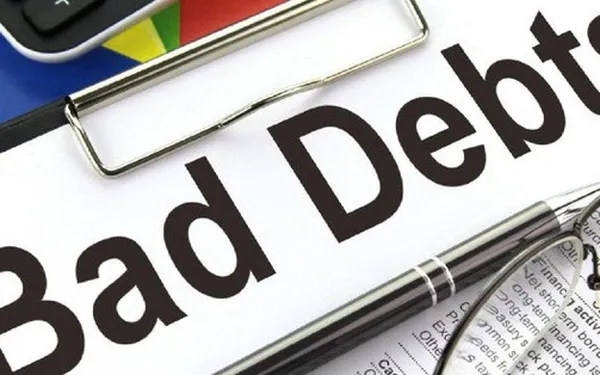
This circular focuses on restructuring debt repayment terms and maintaining the same debt group to offer support to customers facing financial difficulties. The government has recently called for a review and potential extension of the implementation period for this circular.
Not expired but has been reviewed...
The circular, which has not yet expired but is currently under review, has seen positive outcomes in the restructuring of outstanding debts. According to a recent report from the State Bank of Vietnam covering the period from April 24, 2023, to October 31, 2023, credit institutions have successfully restructured a total outstanding debt of VND 158,694 billion, including principal and interest. This restructuring has benefited 167,220 customers, enabling them to adapt their debt repayment terms while maintaining their debt group. The balance of restructured debt has steadily increased over the months, and there are currently no reported difficulties or issues arising from the circular's regulations.
While the implementation of Circular 02 initially progressed slowly, subsequent reports from the State Bank highlight a smoother execution compared to other programs. However, the Governor of the State Bank emphasized the ongoing review and amendment of legal documents to ensure that difficulties are removed while risks are managed strictly to safeguard the stability of the financial system.
At a conference addressing challenges in credit growth for production and business, held on December 7, the Prime Minister directed relevant entities to implement key tasks and solutions. The State Bank was assigned 10 groups of tasks, including the urgent review, amendment, and potential extension of the implementation time for several circulars, including Circular 02. This move aims to align the circulars with the current economic situation, stabilize the monetary market, and ensure the safety of credit institutions.
With six months remaining before Circular 02 expires, the banking industry has proactively prepared to support businesses. The circular's role in alleviating financial pressure, restructuring debt, and reducing bad debts for businesses and borrowers has been crucial. This support allows them to maintain access to new loans, sustaining production, business, investment, and consumption.
The year 2023 poses additional challenges, as credit flow shows signs of congestion. Credit growth has been sluggish, registering only a 9.87% increase as of December 13 compared to the end of 2022. Businesses continue to face difficulties in accessing credit, despite ample room for credit institutions to expand credit. This situation has prompted management agencies to seek ways to address the issue. Therefore, the extension of debt restructuring regulations, including Circular 02, is seen as a reasonable measure to help banks reduce bad debts on their balance sheets.
A Call for Extended Support
The latest financial reports from the banking sector paint a concerning picture, highlighting the increasing strain of bad debts on both businesses and financial institutions. As of the end of September, the total bad debt across 28 banks exceeded VND 210,000 billion. Alarmingly, 9 out of these 28 banks surpassed the 3% threshold for the bad debt/outstanding debt ratio, with some reaching an alarming 26% bad debt ratio. The bad debt structure reveals a worrisome trend, with doubtful debt (group 4) rising by 119%, substandard debt (debt group 3) by 69%, and debt with potential loss of capital (debt group 5) by 12% compared to the beginning of the year.
Within the credit structure, real estate business credit witnessed a growth rate of 21.86% in the first nine months of the year, surpassing the general credit growth rate and the corresponding period last year. However, the bad debt ratio in real estate credit also surged to 2.89%, a significant increase from 1.72% at the end of 2022.
The State Bank's report to the National Assembly revealed a concerning on-balance sheet bad debt ratio of 3.56% (equivalent to VND 440,000 billion) at the end of July, higher than the 2% recorded at the end of 2022 and 1.69% at the end of 2020. The total on-balance sheet bad debt, combined with outstanding debt sold to VAMC and potential bad debt, represents 6.16% of the total outstanding credit debt. In addition, Mr. Nguyễn Hải Nam, a standing member of the National Assembly's Economic Committee, pointed out that outstanding debt on overdue corporate bonds, coupled with incomplete payments to investors, amounts to about VND 190,000 billion.
Anticipations suggest that the bad debt situation is unlikely to reach its peak until after the expiration of Circular 02. Compounding this issue, the legal framework for handling bad debts faces uncertainties as Resolution 42/2017/QH14 of the National Assembly, which pilots bad debt handling, expires on December 31. The Draft Law on Credit Institutions (amended) has yet to be approved. As a result, the extension of Circular 02 becomes a crucial hope for addressing this challenge.
When applying Circular 02, credit institutions must adhere to a roadmap for additional credit risk provisions (50% in 2023 and 100% by the end of 2024). While this requires ongoing commitment, it also alleviates pressure by reducing bad debts and enables lending to parties whose debts are restructured.
Many experts advocate for an extension of Circular 02 by approximately one year, until mid-2025. This recommendation stems from the belief that the bond and real estate markets are unlikely to recover before the first half of 2024, and enterprises continue to grapple with numerous challenges. An extension of this regulation would not only bring relief to businesses but also serve as positive news for the banking sector.




















